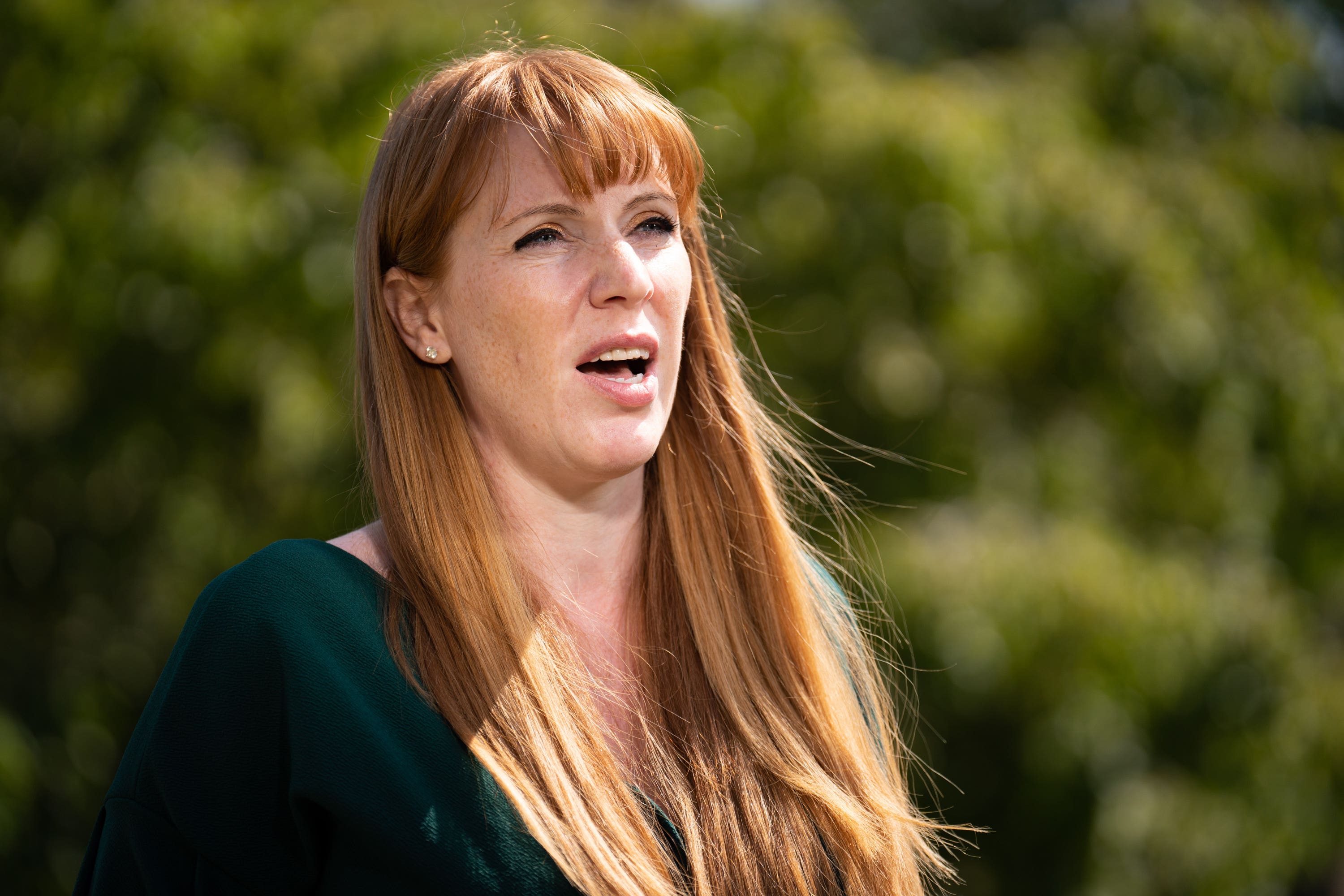Rayner says ‘pragmatism, not ideology’ key to Labour choices
The deputy opposition leader is ‘not for nationalising something that is going to cost us a load of money’.

Your support helps us to tell the story
From reproductive rights to climate change to Big Tech, The Independent is on the ground when the story is developing. Whether it's investigating the financials of Elon Musk's pro-Trump PAC or producing our latest documentary, 'The A Word', which shines a light on the American women fighting for reproductive rights, we know how important it is to parse out the facts from the messaging.
At such a critical moment in US history, we need reporters on the ground. Your donation allows us to keep sending journalists to speak to both sides of the story.
The Independent is trusted by Americans across the entire political spectrum. And unlike many other quality news outlets, we choose not to lock Americans out of our reporting and analysis with paywalls. We believe quality journalism should be available to everyone, paid for by those who can afford it.
Your support makes all the difference.A Labour government will not nationalise industries that will cost a “load of money” according to the party’s deputy leader Angela Rayner.
Talking to The Observer, she said they need to be pragmatic when making decisions over radical policies such as renationalising the railways.
She said: “I’m not for nationalising something that is going to cost us a load of money that we haven’t got when we’ve got kids starving and in poverty.
“Politics is about choices. With the rail companies, we have said that once their contracts are up we’d bring them back into public ownership and that’s a way of doing it.
“It’s pragmatism, not ideology, it’s about asking: will it improve people’s lives?”.
She continued: “If you are not getting value for money and (public services) are not delivering then we need a mechanism where local authorities are able to bring those services back in-house, to make the decisions, to improve the services locally and make them more accountable to local people.”
Asked about leader Sir Keir Starmer’s treatment of figures on the left of the party, including his predecessor Jeremy Corbyn, she said Labour needs to remain a broad church.
“It has to be because it’s not just about the party, it’s about voters,” she said, brushing off questions on becoming Labour’s first female prime minister.
“My ambition is to get into government and to deliver on the New Deal for Working People and to have a legacy, so that I can say to my constituents and my grandchildren ‘we changed that’ and, as a result, had an impact on people’s lives.”
Most of the trolling is misogynistic - calling me a bitch and things like that
The Ashton-under-Lyme MP has faced considerable attacks on social media and received death threats which have seen panic buttons installed in her house and her teenage sons receiving security escorts.
“Most of the trolling is misogynistic – calling me a bitch and things like that,” she said. “Or saying I’m thick because I haven’t been to university and can’t speak properly.
“Well, I’m not thick, obviously, otherwise I wouldn’t have got where I am today. And I speak like people do where I grew up and, guess what, being a woman does not make you inferior to a man.”
She said many Conservative members are “quite scared of me… because they don’t often meet people like me” but says she gets on with colleagues from all sides.
“We’re all parliamentarians and it’s about respecting the fact that we are all here to represent our constituents,” she said. “We may have a difference of opinion, and that’s fine, but we generally rub along OK.
“It’s the nasty, anonymous briefings to the press that give the idea that parliamentarians are a bunch of horrible, back-stabbing individuals, but I don’t recognise that on a day-to-day basis.”